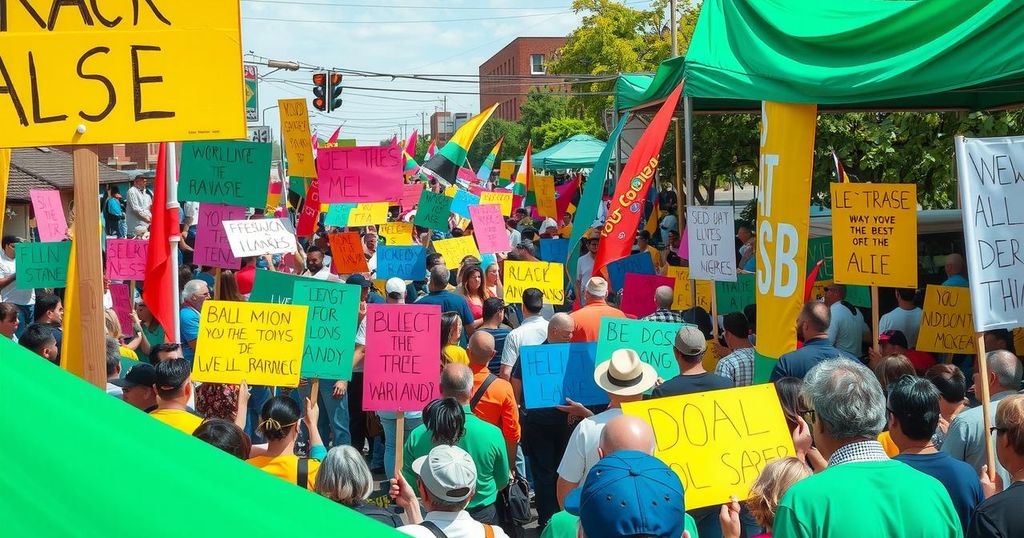Understanding the Recent Protests in Brazil and Declining U.S. Consumer Confidence
Protests have erupted in Brazil due to governmental policies, reflecting public discontent. Concurrently, U.S. consumer confidence has fallen by 10.5%, raising concerns about economic growth. An online poll was conducted to measure confidence in the economy’s stability amidst these developments.
In recent developments, protests have erupted across Brazil, primarily in response to various governmental policies. The demonstrations signal public discontent with economic and social issues affecting the nation. Citizens are actively voicing their concerns regarding government decisions that they perceive as detrimental to their wellbeing.
Additionally, there are indications of diminishing consumer confidence within the United States, as evidenced by a recent University of Michigan poll. The poll reveals a notable decline of 10.5% in U.S. consumer confidence over the past month, leading to serious concerns about future economic growth. Bill Adams, chief economist at Comerica Bank, emphasizes that such declining confidence could severely hinder economic expansion, as decreased spending among consumers exacerbates economic difficulties.
To gauge public sentiment, an online poll was conducted regarding confidence in the U.S. economy’s stability. This poll seeks to understand citizens’ perspectives amidst fluctuating economic indicators and prevailing uncertainties in both domestic and global markets.
The protests in Brazil reflect widespread dissatisfaction with government policies, emphasizing the citizens’ demand for change. Furthermore, the decline in consumer confidence in the United States, highlighted by a significant drop reported in a recent poll, raises alarms about potential economic repercussions. Both situations underscore the importance of effective governance and economic stability in ensuring public trust.
Original Source: www.goshennews.com




Post Comment